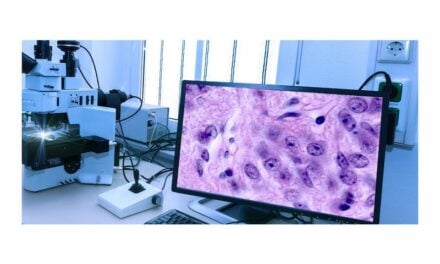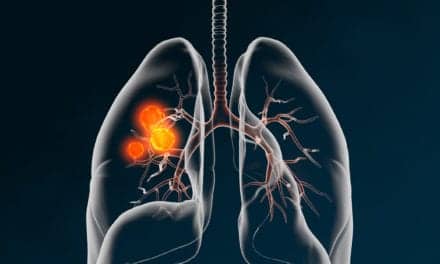Qiagen, Germantown, Md, and Hilden, Germany, has announced an FDA premarket approval (PMA) supplement expanding the labeling claim of the Therascreen EGFR RGQ PCR kit to allow its use as a companion diagnostic with Pfizer’s Vizimpro (dacomitinib) for first-line treatment of patients with non-small cell lung cancer (NSCLC) with epidermal growth factor receptor (EGFR) exon 19 deletions or an exon 21 L858R mutation.
The Therascreen EGFR RGQ PCR kit is now approved as a companion diagnostic to guide the use of three FDA-approved therapies, which also include Gilotrif (afatinib) from Boehringer Ingelheim and Iressa (gefitinib) from AstraZeneca. This was a project governed under an agreement between Qiagen and Pfizer. Therascreen is registered in more than 40 countries.
“As precision medicine becomes the standard of care in oncology, we are pleased to provide benefits to more lung cancer patients with our clinically proven Therascreen EGFR RGQ PCR kit. Our collaboration with Pfizer has made great strides already and will continue to improve personalized healthcare for patients around the world,” says Jonathan Arnold, vice president and head of oncology and precision diagnostics for Qiagen. “In addition to detecting a comprehensive panel of EGFR mutations, the Therascreen EGFR kit offers laboratories an efficient workflow on the Rotor-Gene Q MDx, the real-time PCR module in our widely used QIAsymphony family of instruments.”
“Vizimpro is an important new treatment option for first-line therapy for patients with EGFR-mutated non-small cell lung cancer exon 19 deletion or exon 21 L858R substitution mutations,” adds Mace Rothenberg, MD, chief development officer of oncology at Pfizer global product development. “FDA’s expanded approval of the Therascreen EGFR kit, which was used in the pivotal clinical trial for Vizimpro, will enable physicians to identify patients who may benefit from this medicine. Pfizer and Qiagen have long collaborated in the codevelopment of companion diagnostics for precision medicines in oncology, and this result shows the value of this ongoing collaboration.”
Lung cancer is the leading cause of cancer deaths worldwide, and non-small cell lung cancer (NSCLC) accounts for an estimated 80% to 85% of cases. NSCLC remains difficult to treat, particularly because many patients are diagnosed with advanced or metastatic disease, where the 5-year survival rate is only 5%.
Mutations in the EGFR gene, generally somatic changes that develop during a patient’s lifetime rather than through inheritance, are implicated in an estimated 10% to 35% of NSCLC cases worldwide. Cancers with these mutations tend to respond to treatments that specifically target the overactive EGFR protein that causes cancer cells to constantly grow and divide.
Qiagen is a pioneer in personalized healthcare and a global leader in collaborations with pharmaceutical and biotechnology companies to codevelop companion diagnostics, which detect genetic abnormalities to provide insights that guide clinical decisionmaking on the use of drugs in diseases such as cancer. In 2018, the company announced that is working under master collaboration agreements with more than 25 pharmaceutical companies to develop companion diagnostic tests for their drug candidates. Qiagen expects more than five FDA submissions or launches in the United States in 2018.






